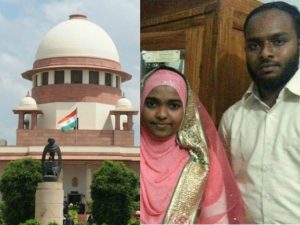
In another twist to the Hadiya case, the Supreme Court of India set aside the Kerala High Court Order which annulled Hadiya’s marriage to Shafin Jahan. The operative part of the Judgement was delivered on March 8. The Court also added that the Judgement delivered by the Court would not affect any ongoing investigations by the NIA. The reasoned Judgement, however, has not been released yet. What emerges from the operative part of the Judgement is that the High Court should not have annulled a marriage under a Habeas Corpus petition.
A petition for Habeas Corpus does not extend to the annulment of any lawful acts taken during the time the person has been missing. On this basis, one may presume that either the Court was satisfied by the lawful nature of the marriage, or that the respondents in the present case failed to submit conclusive evidence against the lawful nature of the marriage. What the Court also mentions is that the Judgement will not affect any ongoing investigations by the NIA. Though the evidence was led on various issues, the Supreme Court had specifically restricted itself to only deciding on the issue of the annulment of marriage, and whether the High Court could annul a marriage between two consenting adults.
The respondent case on this issue was that Hadiya was a "vulnerable adult" and that the High Court was empowered to act as her guardian. It may be presumed that the Supreme Court found this line of argument too much of a stretch and that if it were to accept it, it would lead to a bad precedent. Further, the allegations of links with radical Islamic elements were not considered by the Court, possibly because the NIA lacked sufficient evidence on the same. This Judgement also means that the argument that the marriage was merely a means to traffic Hadiya and take her out of the country was not accepted by the Court.




